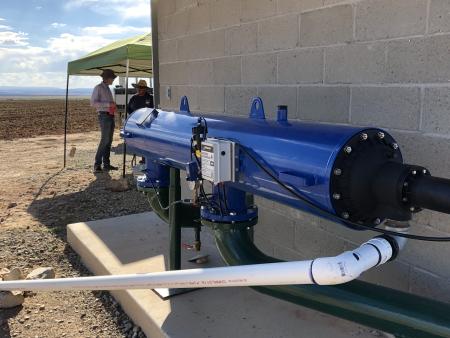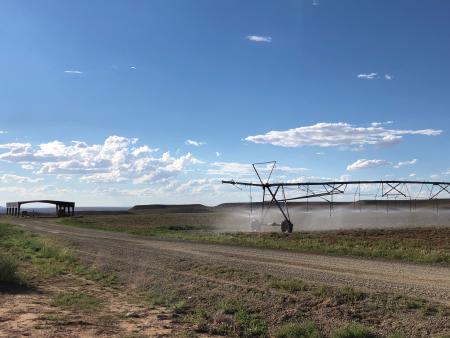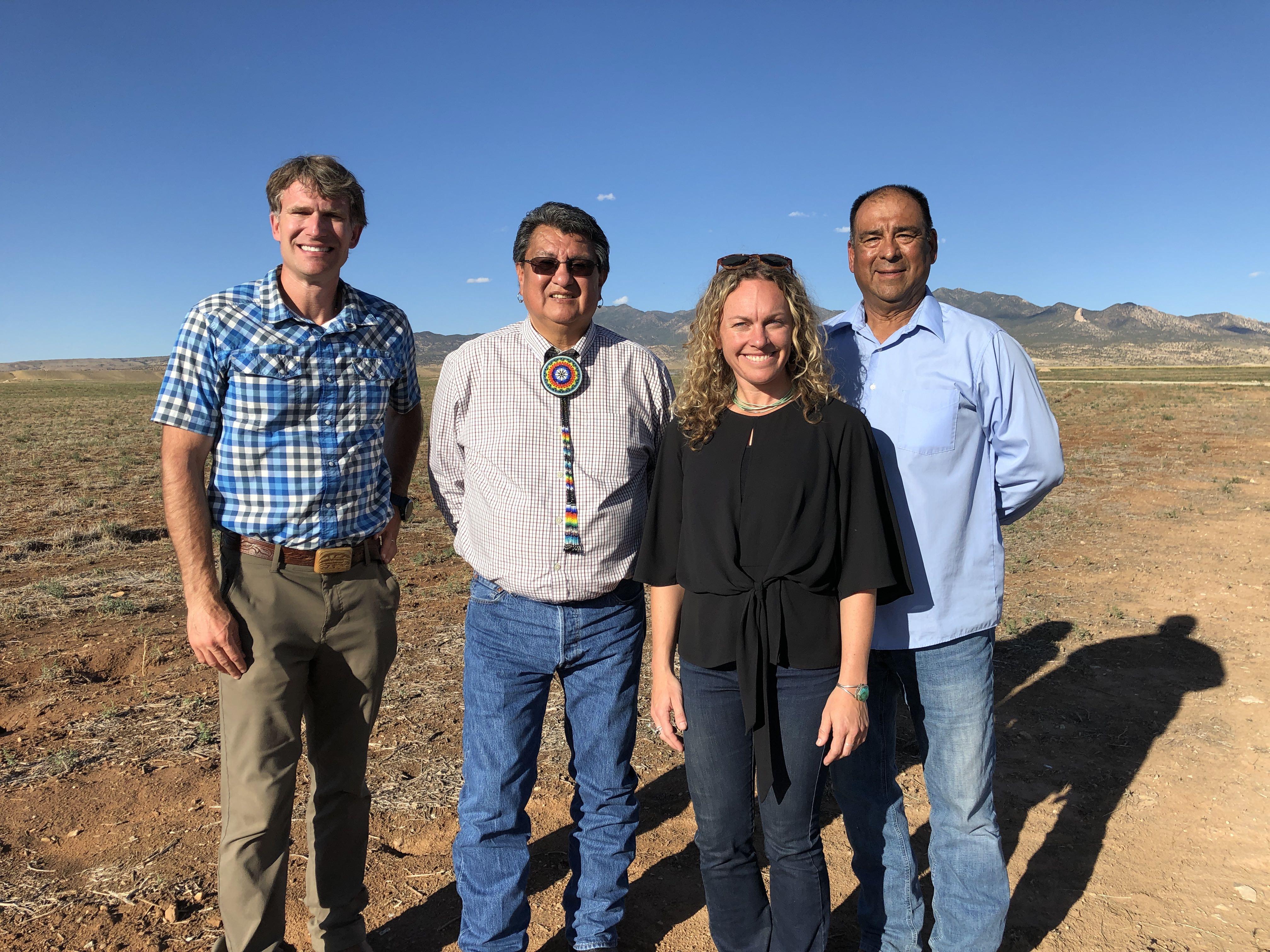On a hot September afternoon, a mix of government and tribal partners gathered to celebrate a hydropower plant project that will support the daily operations of the Ute Mountain Ute Tribe’s Farm & Ranch Enterprise. Staff and board directors from the Colorado Water Conservation Board, Department of Natural Resources, and project participants from the Ute Mountain Ute Tribe gathered to view the latest tool in the climate change mitigation toolbox - a recently installed hydroelectric turbine.
By utilizing funding from CDA’s ACRE3 Program, the Ute Mountain Ute Tribe Farm & Ranch Enterprise-Bow & Arrow Brand LLC has so far installed 3 out of a proposed 10 hydroelectric turbines that harness the energy of water to provide clean energy powering the Farm’s center pivot irrigation and milling operation.
The Tribe has received $413,000 with an additional anticipated $450,000 to complete the project over the next few years. With other funds provided by the Natural Resources Conservation Service, the project’s expected electricity capacity is more than 36,000 kilowatts per year. Once the project is completed, it will mean an annual savings of $42,000 and 345 tons of CO2, savings which benefit the Tribe’s finances and the environment at large.
The Farm operates 7,700 acres of farmland when in full operation, primarily growing corn that is harvested, ground at the onsite mill, and distributed through the Tribe’s Colorado Proud Bow and Arrow Brand. The cornmeal, generated in blue, white, and yellow varieties, is highly prized for its non-GMO contents and heritage. Corn is one of the few products native to North America and is important to all the cultures who call Colorado home. It’s this heritage that gives the Tribe its voice in leading the way through the current impacts of drought.
The connection to land stewardship is palpable in Southwest Colorado where the Ute Mountain Ute Farm & Ranch is located. As the center pivots irrigate the growing corn, the stark reality of drought is just a few feet away - evidenced by the sandy dust of nearby land. Last summer, due to water shortages on the Colorado River, only 10 pivots out of 110 were able to operate, severely cutting into the enterprise’s yield. While monsoon rains this summer gave much needed relief, the landscape is still, as is the rest of Colorado and the arid West, classified as drought stricken.
The Tribe has resided on this land for millenia, and not always with understanding or awareness from the outside world of just exactly how much they have accomplished in those years. As the temperatures continue to rise and snowpack runoff making becomes more limited for irrigation use, the Ute Mountain Ute Tribe has adapted and adjusted. Their willingness to increase efficiencies, think creatively, and most importantly, to positively impact the rapidly changing landscape, continues the Tribe’s traditions of being respected leaders in land stewardship and agriculture.
In past centuries, it was standard practice to grind wheat or corn using a water wheel. The Tribe has brought the practice full circle with their latest project, harnessing the power of water to help with the increasingly difficult work of running a farm. This project is one of the many ways the Tribe is acknowledging the reality of the present drought and climate difficulties while seeking progressive solutions. Tribal members understand that to give up in the face of challenges is to doom their future. Instead, members have found creative ways to continue farming and ranching, tying the lessons of the past to calculated risks that will hopefully pave the way forward to a sustainable future.


